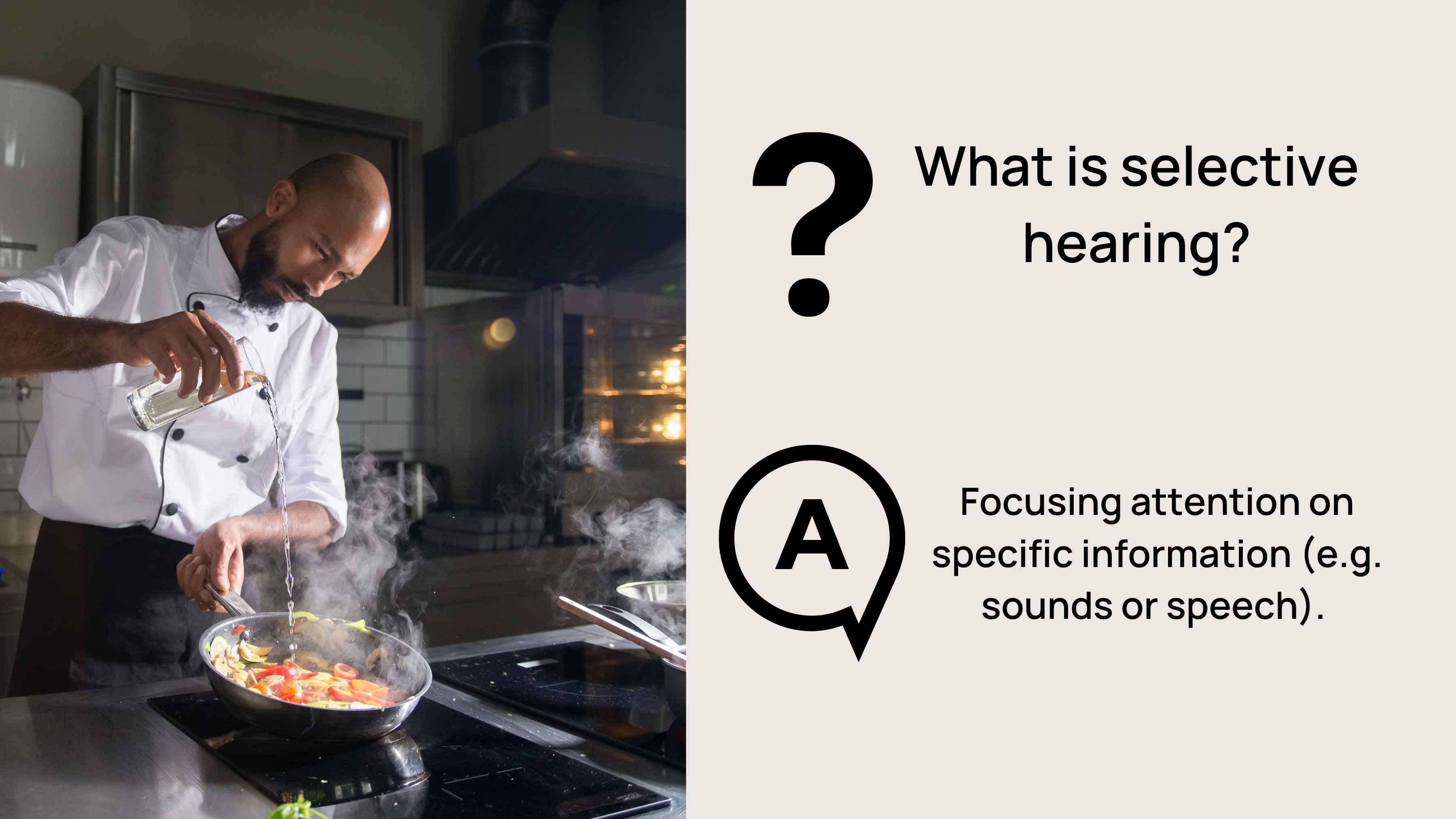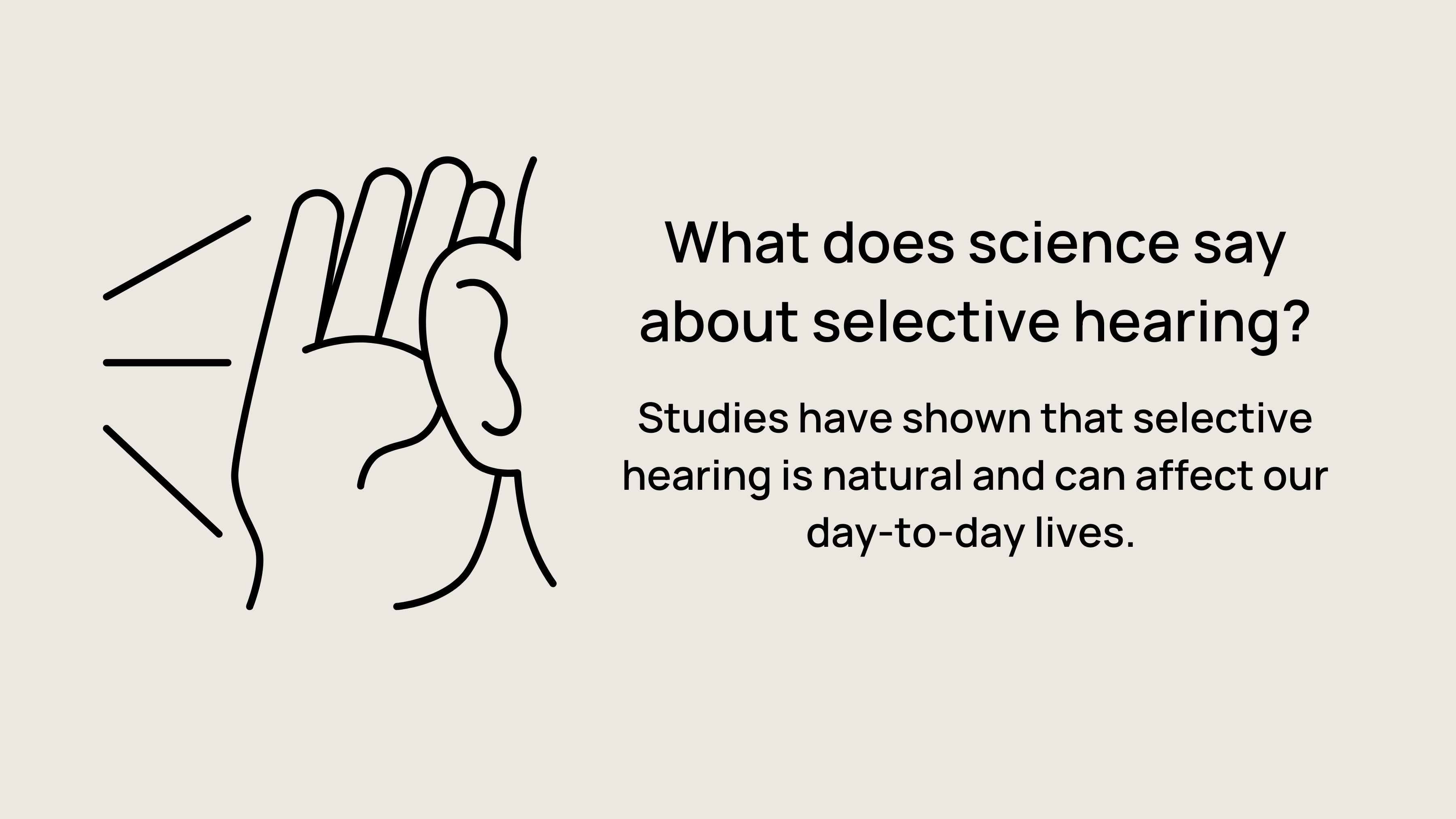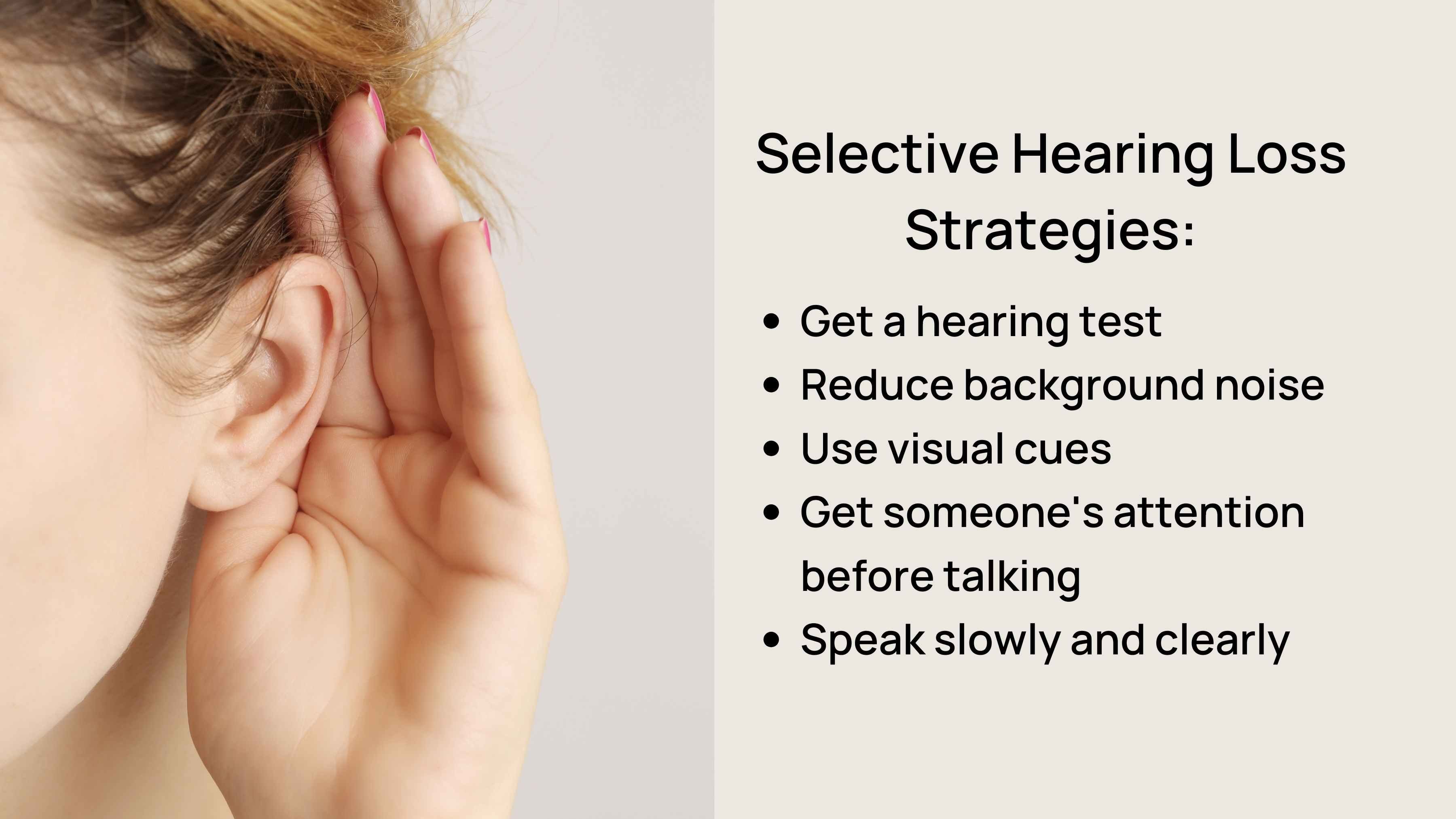Key Takeaways:
- Selective hearing, while often joked about, is a skill that we all use on a daily basis.
- When we are in a noisy environment, we use selective hearing to tune out the background noise and focus on our conversation partner.
- Some individuals are better at selective hearing than others, which research attributes to working memory.
- Anyone with hearing concerns should have a comprehensive hearing evaluation to rule out hearing loss.
.png)
Parents and partners alike have joked about selective hearing for the longest time, but is it really a thing?
As an audiologist, I often meet patients coming in for their first hearing test who joke that their wife sent them, but it's just due to their "selective hearing," and that they don't feel they have a hearing problem. Does selective hearing truly exist? The short answer is yes. Beyond the jokes, what are the implications of this phenomenon? Below, we’ll examine what science has to say about selective hearing and how to treat it.
What is selective hearing?

As we go about our daily lives, we constantly prioritize where we focus our attention. Imagine a scenario in your home with various noises in the background:
- Dinner is cooking on the stove
- Water is running in the sink
- A fan is humming overhead
- The dog is walking across a tile floor
- Music plays from stereo speakers
Despite all of this extraneous noise, you can still selectively attend to your partner's voice and have a conversation. This is an example of "selective hearing" in that you can selectively listen to your priorities. Selective hearing helps our brains filter out sound signals deemed unimportant or irrelevant and keep us from feeling overwhelmed by all of these sounds in our environment. Sometimes this happens subconsciously and can be triggered by anything from fatigue or stress to being distracted or preoccupied.
What does science say about selective hearing?

Studies have shown that selective hearing is natural and can affect our day-to-day lives. As the brain processes all the information we hear and can prioritize, it sorts out what is most relevant for us. One study corroborates this phenomenon, demonstrating a more significant neural response to the target listening stimuli (e.g., tones or speech). It is incredible to think about how we can simultaneously hear sounds in our environment but then focus on what is most important. All of this constantly happens around us in real time, allowing us to have conversations, keep us safe, and focus on what is essential.
Are some people better at selective listening than others?

Yes, some people are more agile with selective listening than others. Research has also discovered that people with poor working memory have more difficulty selectively listening than those with a stronger working memory. Additionally, one study found that increased age worsens the ability to attend to speech in the presence of noise selectively. In general, listening to background noise becomes more challenging as we age as well. That being said, there are some people who are better at this task than others.
Is selective hearing a sign of hearing loss?
Not necessarily—selective hearing isn't a sign of hearing loss or impairment—but it can be harder to selectively listen when someone has hearing loss. In the example above, selective hearing is a helpful skill which helps us focus when needed. However, in one study by Shinn-Cunningham and Best, selective listening for individuals with hearing loss was made more difficult due to degradation in the auditory signal. What does that mean in conversation? It can be harder for listeners with untreated hearing loss to participate in a lively, back-and-forth discussion or another complex listening environment.
However, other reasons can cause us to miss the conversation, such as conditions that impact concentration or cognition. For example, anxiety or attention deficit disorder (ADD) can make allocating our attention in certain situations hard. If you find yourself having difficulty focusing on conversations or noticing when someone is talking to you, then it may be worth talking to your doctor about further testing for these conditions.
What can I do about selective hearing loss in myself or my partner?

There are many reasons someone has trouble hearing or participating in a conversation. However it is essential to rule out hearing loss if someone is struggling or having trouble understanding.
Here are some practical tips and steps to follow if you have concerns:
Get a Hearing Test
Ruling out hearing loss is an excellent first step. Read more about what to expect during your first hearing test. If you do have hearing loss, you can consider treatment options, such as hearing aids or assistive listening devices. In addition to hearing assistive devices, communication strategies will also make listening easier.
Use Communication Strategies
To help make communication easier, try these strategies:
- Make use of visual cues
- Speak slowly and clearly
- Reduce background noise (e.g. walk away or turn down the volume)
- Get the person's attention first before talking
If you or a family member is struggling, add these tactics to your communication tool kit. It makes connecting easier for everyone. If you continue to struggle, make sure to seek out help.
Conclusion
Selective hearing is real and it's not just an excuse for ignoring someone. It's essential to understand how this phenomenon helps in daily life. Keep in mind that there are times when people have trouble picking up on conversations for many reasons. Whether it's related to something like hearing loss, stress or fatigue, ADD/ADHD, or poor working memory, knowing the root cause will help you better understand how best to address the issue and improve communication in all aspects of your life.






